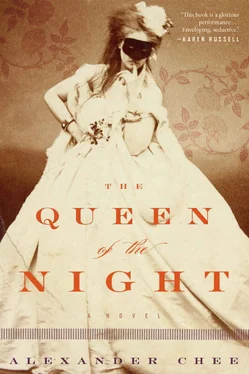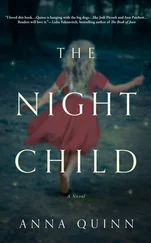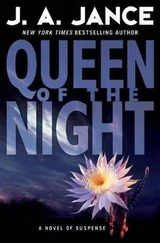He tried to smile at the joke as he stood and dressed. Then he kissed me good night, and was gone.
§
Doro came red faced the next morning to set my fire and lay out my clothes.
I’m proud of you, I said. I’m sure it cost him dearly.
She nodded and held out her hand, palm up. A beautiful ruby ring, face turned in.
It’s quite fine, I said. You did well.
She held out her hand, admiring the ring before turning it to face her and returning her attention to my dressing table.
§
When Aristafeo arrived, we were still at breakfast. As he was announced, I noticed, behind my feigned surprise, the Verdis gave each other a knowing glance.
The sun outside was so bright it seemed to roar, and it filled the room so that when he came to a stop in front of us his face was difficult to see.
I was waiting for a sign he had possibly forgiven me for this secret he knew I carried, the one I could never admit to or apologize for. I wanted to know this before we began what was next, but I could not, and so I had to content myself with that as he greeted our hosts warmly and then came around to my side, where he took my hand.
He looked down at me and smiled, a smile of pure love, more intimate than if he had kissed me there.
She has accepted a role in my opera, Aristafeo said. They cheered, and next Verdi said he had received my note regarding I Masnadieri , which had pleased him. I am afraid I replaced you, but I do not care for the singer if you are still available. I hoped you would come to your senses; I can now replace her. Then he called out for champagne to be brought despite the early hour. The bottles were opened and we toasted the two operas.
After we had drunk our toast and the glasses were refilled, Verdi suggested we take them into the garden. As we went out, Giuseppina said, I wish you more luck than we had with Il Trovatore.
What is this? Aristafeo asked.
It was a terrific struggle to get it to the stage, but I think they all must be, she said, before she went to examine the shrubs along the wall. Aristafeo followed, chuckling.
This is the garden that inspired the one in the opera, Giuseppina said. Did you never know that? She asked this of Aristafeo, who said he did not: and he asked her questions as to which part was which as she took us around, pointing out the plantings. Verdi followed behind.
Did you originate the role? I asked her finally, as she finished her explanations and Verdi and his protégé walked on ahead.
Oh, no, my dear. You may remember that I retired; I wanted some respite from operas coming true. She winked. But I translated the play he took it from for him, she said. I did most of the work here. And then when he wrote the opera, he walked here quite often to think on it. It’s very pleasant here. In any case, I think of it as our opera, as you two should of yours.
She came to a stop. Imagine it, if you will, and she pointed back to the villa. Here is our trovatore come to serenade his beloved. There she is, waiting for him. Over there, the count hidden, jealous. Sometimes he would have me stand there and sing from it to see how it sounded.
I looked back. I could not see her. I saw instead a shadow, the Leonora of the night the tenor sang at the Théatre-Italien, the night I was given back to him. I could see him bringing me to Baden-Baden, full of hope that I would learn to be his Leonora there; I could see the garden at Villa Turgenev, where I sat imagining, again and again, the reappearance of the man standing near me now, my fearing his death, fearing us all caught in some game of Fate that would lead relentlessly to the place we apparently stood now and end with the two of us dead — the tenor our killer. I saw all that I had done to keep Aristafeo and me from this garden, and so I could not help but feel as if being here this way was yet another joke between me and whatever god had chased me for so long. Despite all my efforts, we stood here, so very alive. And the one we’d feared was dead.
I laughed. It was the wrong sort of laugh, I knew — this laugh spoke to the joke, the one this god had made of my life, and not to my companions, who could tell there was something strange to it and who watched me, waiting to know more. I set the champagne down instead, pointed at my glass, my hand over my mouth, as if the wine were at fault, at which they all three smiled as I mastered myself.
Afterward, the Verdis excused themselves, and Aristafeo and I were left alone. We sat on a bench in the cold sunshine and made our next plan: He needed us to travel to the Russian empress at once to secure her approval of the commission. Only after securing that approval would he then return to Paris and officially end his ties with the Baroness. When he returned from that trip, our new life together would begin in London.
He withdrew the tiny rose, my knife, and my old route book, and set them on the bench between us.
Until then, he said. Let them remind you of me.
§
After his departure, I decided to speak with Doro about her notice again and returned to my rooms.
When I’d given Lucy her notice, she had been simplicity itself; she said she understood. She had always been sweet to me, content to do her one job well, and if she’d ever stolen from me or cheated me, I never knew it. After I provided her with a letter of reference and a reward for her long service and loyalty to me, she’d hugged me and we agreed she was to leave shortly after my return to Paris. Doro had scoffed and refused, however, insisting I would need her, and… I had needed her. This, in turn, had shamed me a little — my resolve looked foolish. We both knew I relied on her good humor and gossip, as well as her ways of tending my hair and clothes, and looking after the upkeep of my accommodations, were they in Paris or Milan or Saint Petersburg. But I was now what I had once pitied, the grand lady with too many gowns and jewels, and not enough friends she could trust, and Doro was the companion I saw every day who knew most of my secrets, if not all of them, and of whom I knew very little. I disliked this. I still did not know where in Italy she had come from, for example; and during our time here, she’d never spoken of it despite insisting on this return. I thought to begin there when I saw her by the dresser, a strange expression on her face.
Are you sad to leave? I asked, as she packed our things.
I am, she said. I have a presentiment that I may never see Italy again.
I would speak to you again about your next placement, I said. I am moving to London, and I would see you taken care of, placed in a new situation. Here, even. Madame Verdi might need someone with your talents or be able to help place you.
She paused — she had been smoothing my coat — and then said, That’s very kind. Thank you. I will take that under consideration. I meant to ask sooner, she said. I found this empty flask on your dresser back in Paris. It smelled faintly of pétrole . What is it for? Will you need it again soon? Should I ask the Verdis if they have pétrole to refill it?
I had been so sure it was in the Seine, this frightened me; it was as if the tenor’s ghost had brought it himself. How had I been so stupid to keep it? And yet I had. I remembered I had put it in my pocket and now it was here.
The flask gleamed in her hand. She held it up, turning it so the light reflected on it, as if my silence meant I didn’t recognize it.
How strange, I managed to say. I don’t know anything about it. Perhaps it is Lucy’s?
I think not, she said. But it is safe; we will discover the rightful owner. And with that, she put it away. I did not think there had been malice or suspicion in her voice; she seemed only genuinely puzzled, but I was not sure. As she did this, I noticed the bed, where a modest black suit was laid out for me, waiting like my own shadow.
Читать дальше












